
#porsche
Austrian engineer Ferdinand Porsche founded the company called "Dr. Ing. h. c. F. Porsche GmbH" in Austria in 1931, then moved to its main offices in the centre of Stuttgart. Initially, the company offered motor vehicle development work and consulting, but did not build any cars under its own name. One of the first assignments the new company received was from the German government to design a car for the people, that is a "Volkswagen". The senior Porsche, whose engineering experience included Daimler-Benz, established an independent design and engineering firm in 1931 and designed the Volkswagen Beetle. He brought a half-century of experience with innovation, from a turn-of-the-century four-wheel drive gasoline/electric hybrid vehicle to the virtually unbeatable Auto Union Grand Prix cars of the 1930s. The Porsche name has become synonymous with sports cars and racecars because that is what company founders Ferdinand Porsche and his son Ferdinand ("Ferry") set out to build when they first set up shop with 200 workers in 1948. The younger Porsche helped grow the new company and was instrumental in designing the first Porsche sportscar, the 356. Though sporting just 40 horsepower from a rear-mounted, slightly souped-up Beetle engine, the first Porsche quickly made its mark with agile handling, as well as attributes almost unknown among sportscars of the day in comfort and reliability. Porsche introduced its own engines in the mid-1950s, along with more powerful versions of the 356. After the 356 came a true legend among modern automobiles, the Porsche 911. Ahead of its time when introduced in 1964, the rear-engine 911 evolved over three decades when Porsche introduced a completely new 911 Carrera for 1999. The lineage includes 911 S (1967), the 911 Turbo (1974 [1976 in the U.S.]), the first 911 Cabriolet (1983) and the first all-wheel drive 911 Carrera 4 (1990). Porsche introduced a series of front-engine models in the 1970s, starting with the four-cylinder 924 (1976) and the unrelated 928 powered by the company's first V-8 engine (1978). From the 924 sprang the more powerful and sophisticated 944 and 944 Turbo, and finally the 968 in the early 90s. Porsche retired both the 968 and 928 in 1995 to focus on development of the rear-engine 911 and mid-engine Boxster. Porsche is also synonymous with racing, and Porsche cars began competing almost immediately. To date, Porsche cars have won an estimated 24,000 auto races around the world, including more than 50 class wins at Le Mans.
We'll tell the story of this Marque on the occasion of its anniversary or when it will reach a sufficient number of cars.
If you would like to share your knowledge and archive, click on the banner JOIN THE LAB - HELP US TO IMPROVE & COMPLETE THE INFORMATION.
The census of all the cars related to this topic is in progress.
CARS (11)
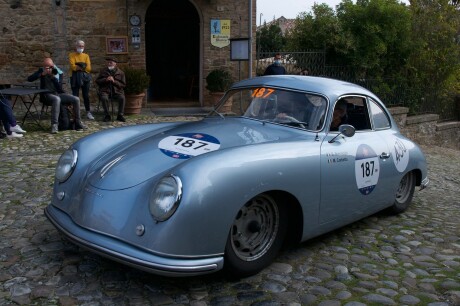
1952 Porsche 356 1500 Super
- Coachbuilder: Stuttgarter Karosseriewerk Reutter
- Chassis n°: 11361
- Engine n°: 30240
Private collection
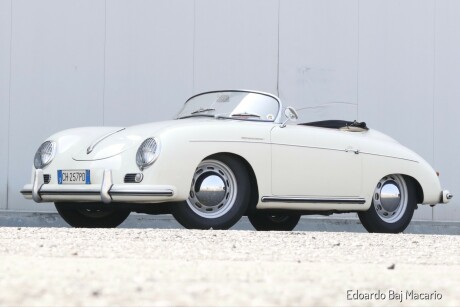
1955 Porsche 1500 Super Speedster
- Coachbuilder: Stuttgarter Karosseriewerk Reutter
- Chassis n°: 80544
- Engine n°: P41254
Private collection
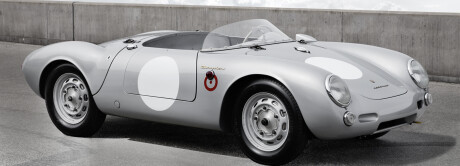
1955 Porsche Spyder Typ 550/1500 RS
- Coachbuilder: Karosserie Wendler Reutlingen
- Chassis n°: 550-0047
- Engine n°: 90051
AZIMUT SCA SICAV RAIF - AUTOMOBILE HERITAGE ENHANCEMENT
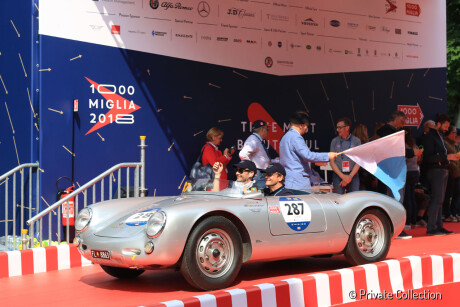
1956 Porsche Spyder Typ 550/1500 RS
- Coachbuilder: Karosserie Wendler Reutlingen
- Chassis n°: 550-0084
- Engine n°: P90130
Private collection
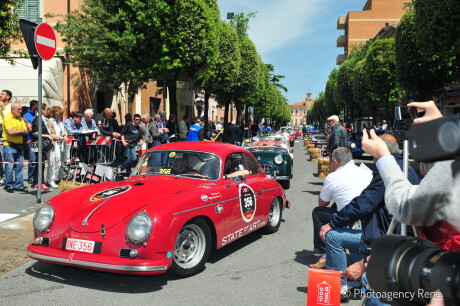
1956 Porsche 356A 1500 GS Carrera Coupé
- Coachbuilder: Reutter
- Chassis n°: 56778
- Engine n°: 91005
Private collection
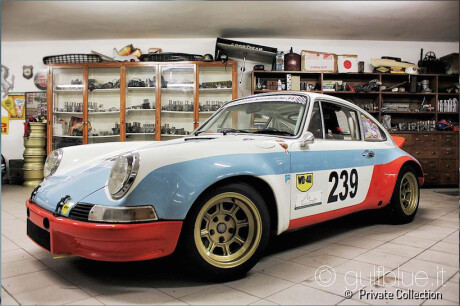
1969 Porsche 911 S Sportwagen
- Coachbuilder: Karmann
- Chassis n°: 119301155
- Engine n°: 6522811
Private collection
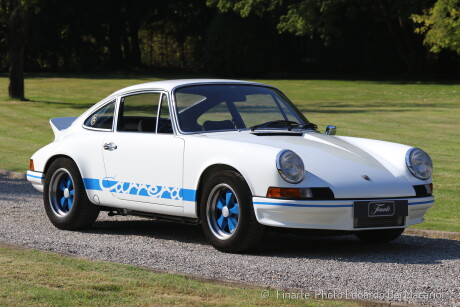
1973 Porsche 911 Carrera RS 2.7 Lightweight
- Coachbuilder: Porsche
- Chassis n°: 9113601443
- Engine n°: 83-6631400
Private collection
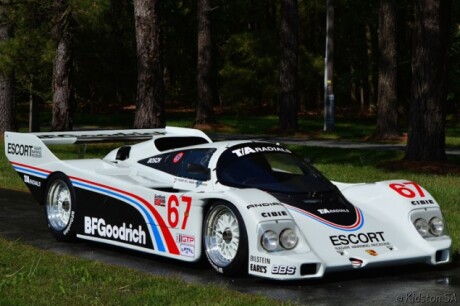
1985 Porsche 962
- Coachbuilder: Porsche
- Chassis n°: 106
- Engine n°: TBD
Private collection
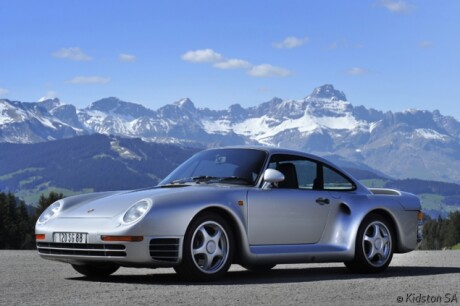
1988 Porsche 959 Komfort
- Coachbuilder: Baur
- Chassis n°: WP0ZZZ95ZJ00250
- Engine n°: TBD
Private collection
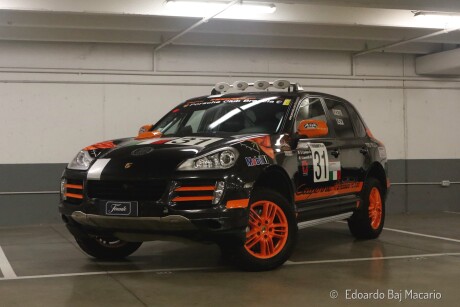
2007 Porsche Cayenne S Transsyberia
- Coachbuilder: Porsche
- Chassis n°: WP1ZZZ9PZ8LA32302
- Engine n°: M48/01 type
Private collection
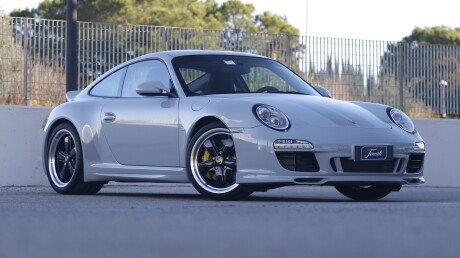
2010 Porsche 911 Sport Classic
- Coachbuilder: Porsche
- Chassis n°: WPOZZZ99ZAS794178
- Engine n°: type MA101S
Private collection